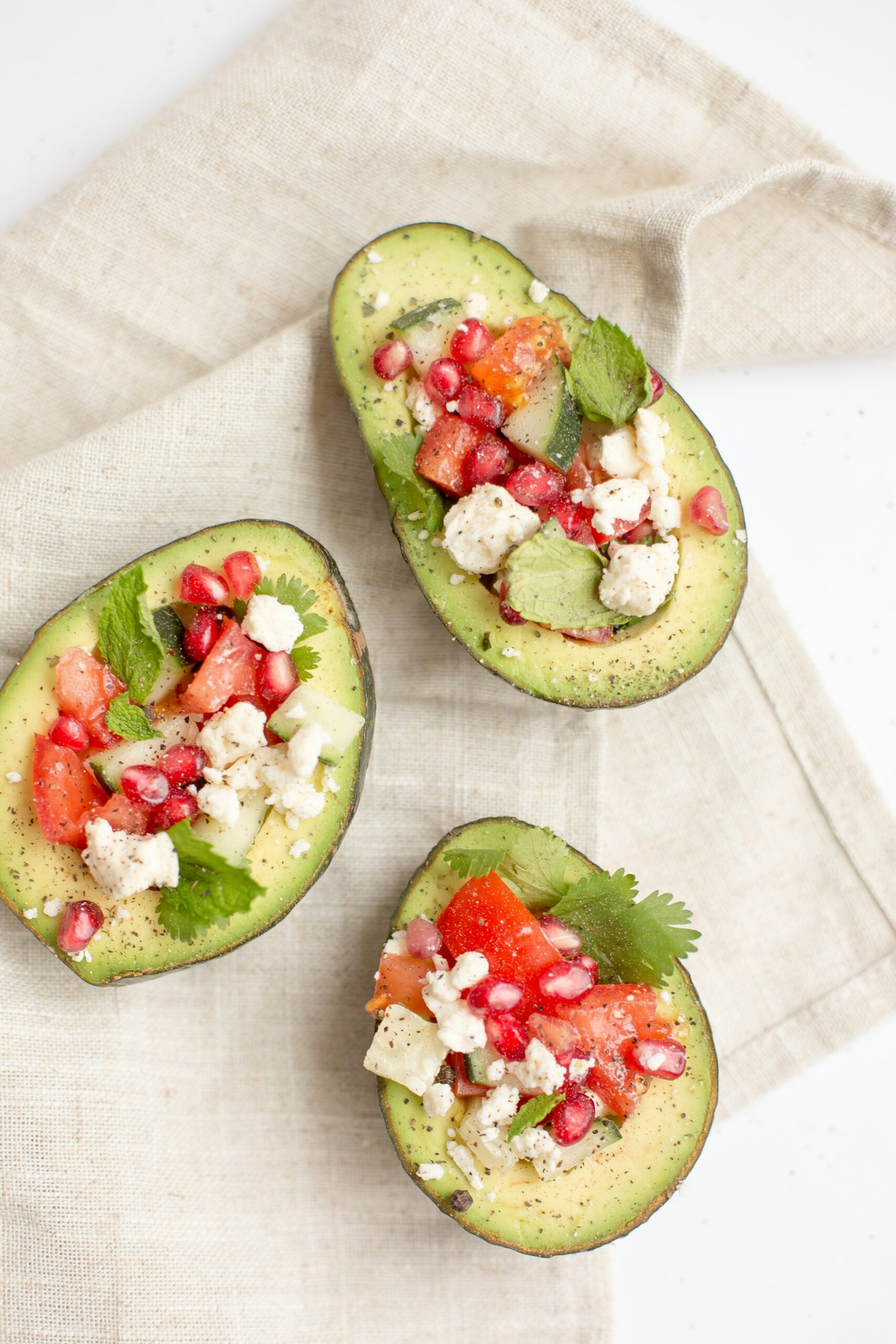Before the read
From keto to carnivore, the top diet trends of 2025 offer a variety of approaches to help meet your health and weight loss goals.
It depends on your body, lifestyle, and goals—but these trending diets each bring unique benefits and challenges.
These contrasting plans may seem extreme, but each has surprising benefits that go far beyond just cutting calories.
Diet Trends 2025: Top Paleo, Vegan, Keto, Vegetarian & Carnivore Plans for Health and Weight Loss
Getting healthier should be simple, but in 2025, nothing seems to be. If you’re looking to improve your diet, you may be overwhelmed by the sheer volume of diet trends out there, many of which are contradictory. Like so many things, what’s considered healthy has become polarizing.
Dietitians, medical professionals, and wellness gurus cannot seem to agree on what they believe to be the optimal diet; however, they all agree that the modern American diet is in dire need of a nutritional overhaul. The contemporary American diet is filled with ultra-processed sugars, unhealthy fats, and a laundry list of chemical preservatives, many of which are carcinogenic.
So, regardless of which direction you choose to take your nutrition, if it’s toward a more balanced, whole foods diet, it’s a colossal improvement over what most Americans eat daily. If you’re serious about changing your diet in the new year and aren’t sure where to start, we’ve compiled the research and broken down the latest diet trends.

The Paleo Diet
The Paleo diet is a modern interpretation of what our early Paleolithic-era ancestors ate. The modern form of the diet was popularized in the 1970s by nutritionist Walter L. Voegtlin but found widespread popularity in the early 2000s thanks to the book The Paleo Diet by Dr. Loren Cordain. The diet focuses on whole, unprocessed foods that could have been hunted or gathered by our early human ancestors, effectively eliminating the ultra-processed sugars, unhealthy fats, and chemical preservatives of the modern American diet. The diet consists mainly of meats, fish, fruits, vegetables, nuts, seeds, and healthy fats. The Paleo diet excludes grains, legumes, dairy, processed foods, and sugars.
The Paleo diet focuses on nutrient-dense foods that can help reduce inflammation, improve joint health, lead to weight loss, and minimize the risk of diabetes. Critics of the Paleo diet note that it excludes many nutrient-dense foods like whole grains, legumes, and dairy. Additionally, the diet can be expensive and difficult to maintain long-term. The Paleo diet is best for those seeking to improve digestion, lose weight, regulate blood sugar, reduce inflammation, and improve joint health.

Vegetarian
As the name suggests, the vegetarian diet excludes all meat, poultry, and seafood. A vegetarian diet may include dairy, eggs, and other animal-derived products. Vegetarianism focuses on plant-based foods like fruits, vegetables, legumes, nuts, seeds, and whole grains. Dairy and eggs are often included for added protein. The vegetarian diet dates back thousands of years to 600 BCE in ancient India, where various religious groups practiced it. In Western history, the diet was practiced by influential figures like Pythagoras and Leonardo da Vinci, who followed vegetarianism for ethical reasons.
A vegetarian diet promotes heart health by cutting out animal fats, which can reduce the risk of heart disease. Studies also suggest that vegetarians tend to have a lower body mass index than others. Additionally, a plant-based diet is associated with a low risk of certain types of cancer, and increased fiber can lead to better digestion. Critics of vegetarians often point out that the diet lacks adequate amounts of vitamin B12, iron, omega-3 fatty acids, and protein if not correctly planned. It’s also easy to fit processed foods, like french fries and potato chips, into the loose constraints of the diet. The vegetarian diet is best for those aiming to improve their heart health, lose weight, or have a moral obligation to avoid animal-based foods.
Vegan
The vegan diet is an extension of vegetarianism. It excludes all animal products, including dairy, eggs, and honey. The diet primarily consists of vegetables, fruits, legumes, nuts, seeds, tofu, tempeh, and grains.
Many vegans have a lower body fat percentage due to the lower caloric density of plant-based foods and enjoy a reduced risk of heart disease. Veganism is also considered one of the lowest carbon footprint diets. Like vegetarians, vegans often lack sufficient levels of vitamin B12, calcium, iron, omega-3 fatty acids, and protein. A vegan diet is recommended for individuals focused on weight loss, heart health, and environmental responsibility.

Carnivore
The carnivore diet has exploded in popularity over the last few years, thanks in part to Dr. Paul Saladino, who promotes an animal-based diet. The diet has been adopted by several high-profile individuals, athletes, and podcasters who swear by its effectiveness. The carnivore diet is highly restrictive and includes only animal-derived products and avoids plant-based foods. However, many modern practitioners find that incorporating fruits leads to the most sustainable diet. The diet is based on a high intake of red meat, poultry, fish, dairy, and eggs. Supplementing with fruit has become increasingly popular. The diet emphasizes nutrient-dense foods that are high in protein and healthy fats. Many vitamins and minerals in vegetables can be found abundantly in organ meat, so many carnivore followers eat liver and heart to round out their nutrient intake.
The diet is simple to follow and doesn’t involve counting calories or macros; it just focuses on animal-based foods. Practitioners who follow the carnivore diet experience weight loss and reduced inflammation often associated with some plant-based foods. The diet has proven beneficial for treating several autoimmune disorders. Critics of the diet point out that it can lead to vitamin, mineral, and dietary fiber deficiencies. Some critics warn that there may be long-term health risks, but there’s not enough research into this new diet to be sure. The carnivore diet is best for people seeking weight loss, reduced inflammation, or to treat certain autoimmune disorders.
Keto
The keto diet is a high-fat, low-carbohydrate diet designed to induce ketosis, a process in which the body burns fat for energy instead of carbohydrates. The diet consists mainly of healthy fats and proteins, with 70 percent of daily calories from healthy fats such as avocados, nuts, oils, butter, and fatty cuts of meat. Twenty percent of the diet is from protein: meat, fish, poultry, or eggs. Ten percent of calories are derived from carbs, mainly vegetables and certain fruits. A key component of the diet is its focus on non-inflammatory foods, which makes ingesting such a high amount of fat plausible.
By avoiding simple sugars and carbs and focusing on high-quality, organic, and grass-fed fats, keto practitioners can achieve ketosis, which promotes weight loss, improves insulin sensitivity, improves blood sugar control, and enhances mental clarity. Some practitioners experience keto flu, a side effect of fatigue, headache, irritability, and nausea. This occurs while the body adapts to ketosis. Critics point out that the diet excludes many food groups, like fruits, legumes, and whole grains, which can lead to deficiencies in vitamins and fibers. If followed too rigidly, there are also some long-term health risks, such as increased cholesterol levels and kidney strain. The keto diet is best for individuals seeking a short-term weight loss solution, those with type 2 diabetes aiming to improve blood sugar control, and those chasing enhanced mental clarity.
With so many paths to health, it may be easier than you think to find one that suits your lifestyle and nutritional needs. Do your own research and find the diet that works best for you. Always consult a professional if you’re considering cutting out major food groups. While all these diets are vastly different, they each cut out processed foods and chemical preservatives while prioritizing whole foods.
More by this author
The Wrap
- The Paleo diet supports digestion and reduced inflammation by focusing on whole foods while eliminating processed ingredients.
- Vegetarian diets offer heart-healthy benefits through plant-based nutrition but require planning to avoid nutrient gaps.
- Veganism in 2025 continues to grow for its environmental impact, weight loss potential, and lower disease risk—though B12 and iron intake require attention.
- The carnivore diet emphasizes animal-based eating, claiming benefits for inflammation and autoimmune symptoms, but remains controversial.
- Keto remains popular for quick weight loss and blood sugar control, though long-term health effects require more research.
- All five diet trends aim to fix the issues caused by the modern ultra-processed diet, encouraging a return to whole, nutrient-dense eating.
- If you’re exploring keto, vegan, Paleo, or other plans, consult a health professional before making major dietary changes.































